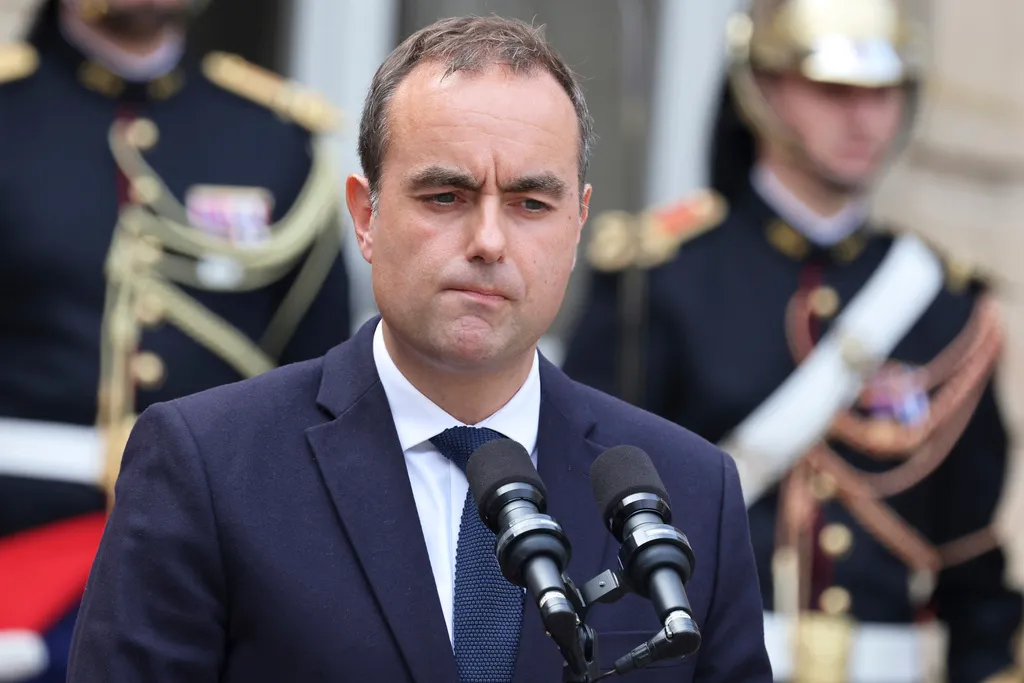Newly appointed Prime Minister Sébastien Lecornu took the reins of France’s legislature this month after his predecessor’s political self-immolation amid seemingly insurmountable divisions among three factions.
Former Prime Minister François Bayrou instigated his own confidence vote this month in a desperate bid to rally support for his unpopular budget proposals, claiming that France was on the precipice of financial disaster if significant reforms were not made. He lost his office in a vote that surprised no one and became the third ousted prime minister within one year.
The new head of government, a former defense minister, seems to hope he can survive longer by floating symbolic budget reforms and tightly aligning with President Emmanuel Macron, who appointed him.

Lecornu’s first signature policy was to announce an end to lifetime benefits for former members of government.
“We cannot ask the French people to make efforts if those at the head of the state do not do the same. Reform is not always for others, as it creates suspicion,” he said over the week.
He later confirmed via social media that “the ‘lifetime’ benefits for former Government members will be eliminated starting January 1, 2026.”
However, that cut is expected to free up just $5 million in the budget, a drop in the bucket compared to Bayrou’s radical reforms.
Bayrou sought to cut almost $52 billion in government spending through an aggressive agenda that included deeply unpopular austerity measures such as slashing unemployment benefits and abolishing two public holidays.
After taking office, Lecornu dismissed many of Bayrou’s ideas, assuring voters and lawmakers that he would “withdraw the suppression of the two public holidays.”
The prime minister is now speaking with Socialist Party leaders in hopes of building enough support to prevent another swift no-confidence vote, flirting with a tax hike for the super-wealthy.
Macron’s most strident enemies remain committed to the idea that Lecornu’s alignment with Macron will ultimately lead to his downfall.
The president is deeply unpopular in France, with current polls showing a 76% disapproval rating among French voters.
But in an area of virtually zero political cooperation in the national legislature, Macron remains France’s only beacon of stability — good or bad.
The French head-of-state acts primarily in the areas of foreign policy and defense — somewhat detached from the domestic governance overseen by the prime minister, the head-of-government.

Macron has repeatedly made clear that he intends to see out his term as president, which will expire in 2027, despite demands from the French parliament’s warring factions.
“President Macron, because of the structure of the Fifth Republic, enjoys strong stability which is not dependent on having the majority of the parliament,” a source familiar with the issue told the Washington Examiner.
While the factions are capable of voting out prime minister after prime minister if lawmakers commit to obstructing Macron’s leadership, the president would be just as capable of appointing replacement after replacement.
Such a situation would render the parliament unable to properly function and leave the nation’s looming financial concerns to further fester.
MACRON PICKS LOYALIST DEFENSE CHIEF AS NEXT PRIME MINISTER
If Macron were to concede to public opinion and call a parliamentary election to address the gridlock, he would likely be handing power to the nation’s right-wing.
Archconservative lawmaker Marine Le Pen’s party, the National Rally, maintains a healthy lead in public opinion polls with 32% support. The left-wing New Popular Front comes in second with 25% and Macron’s centrist Renaissance faction sits at a mere 15%.
The center-right Republicans are performing the most dismal of all mainstream parties, with just 12% support.
